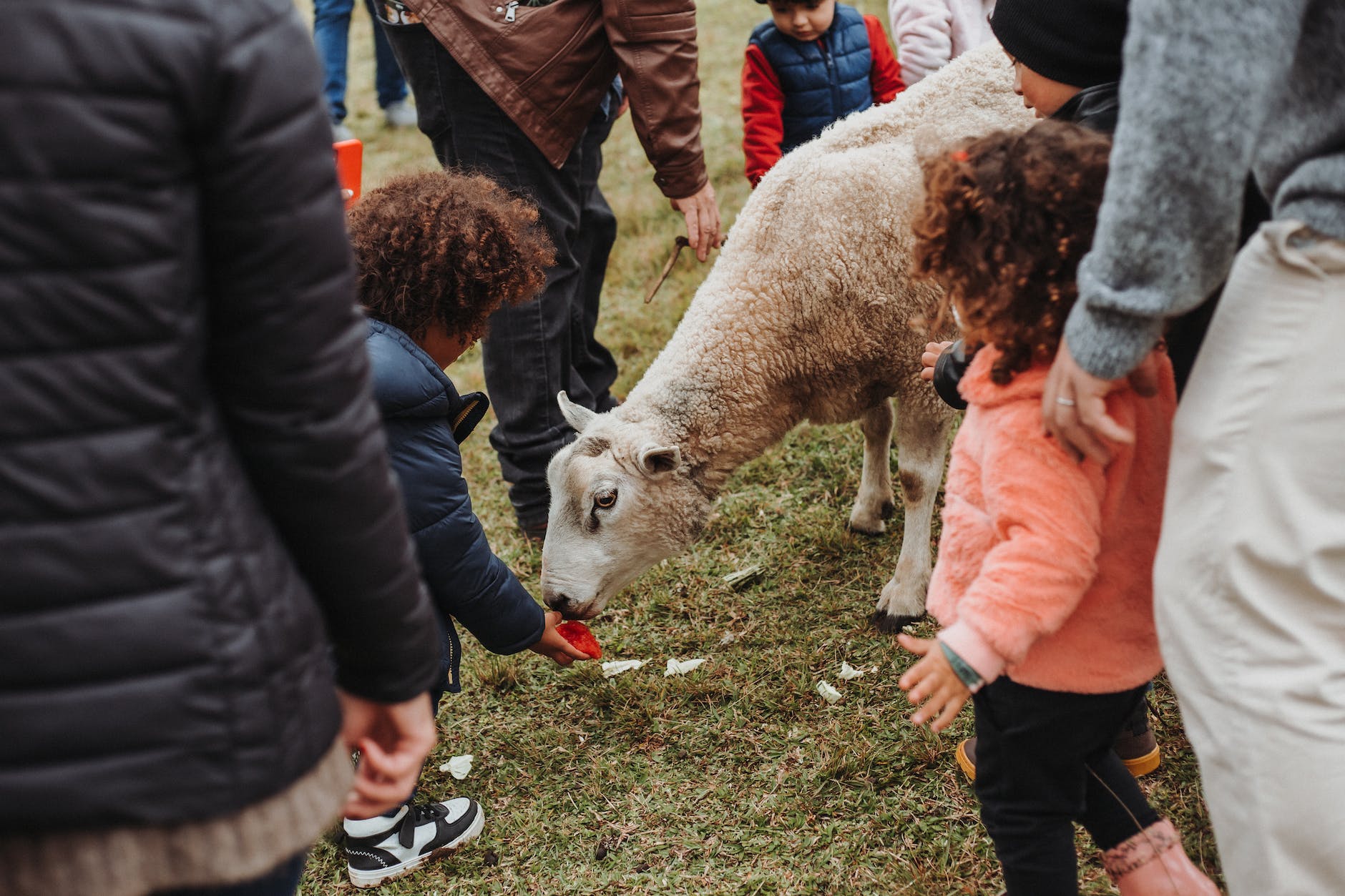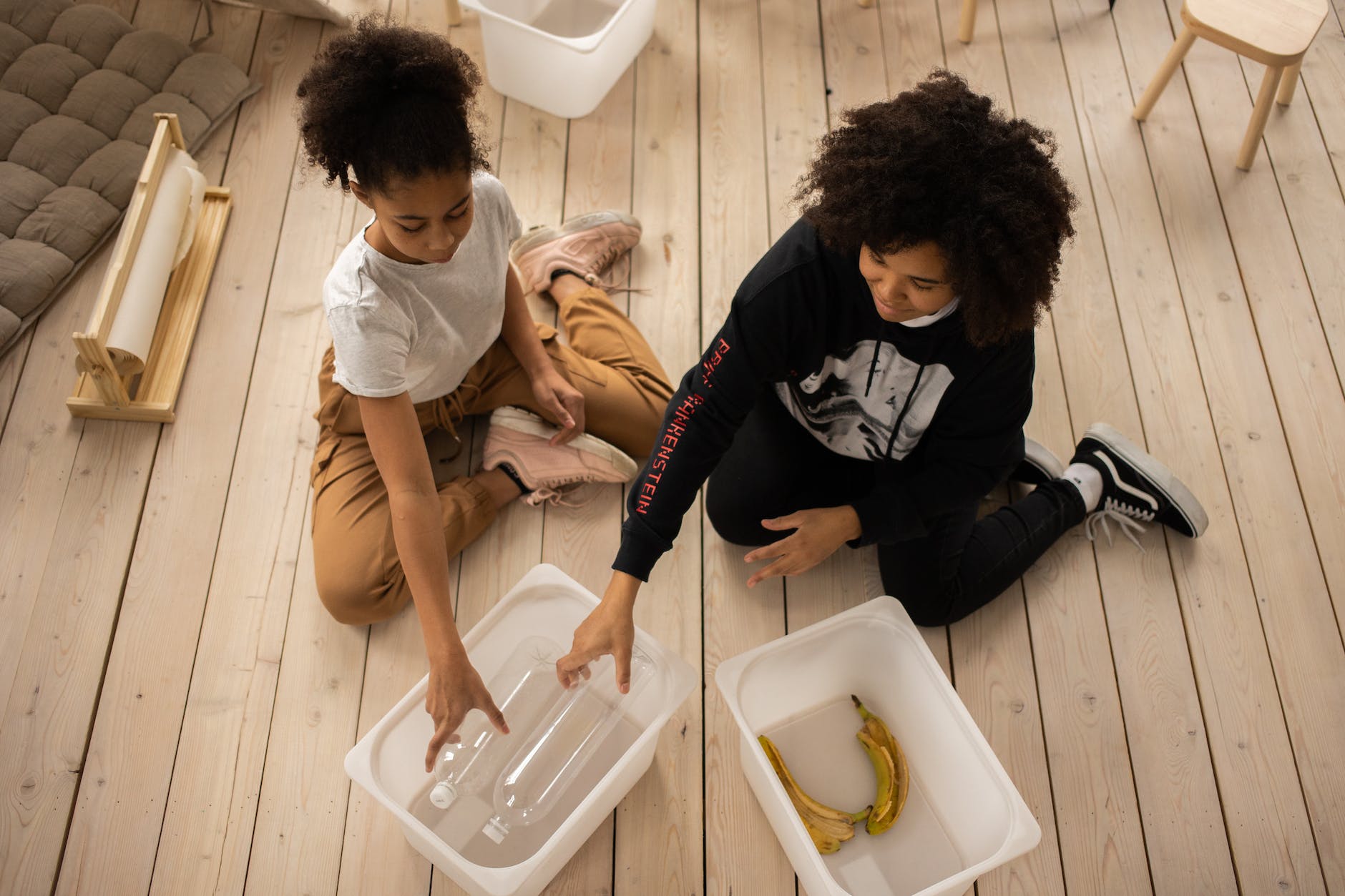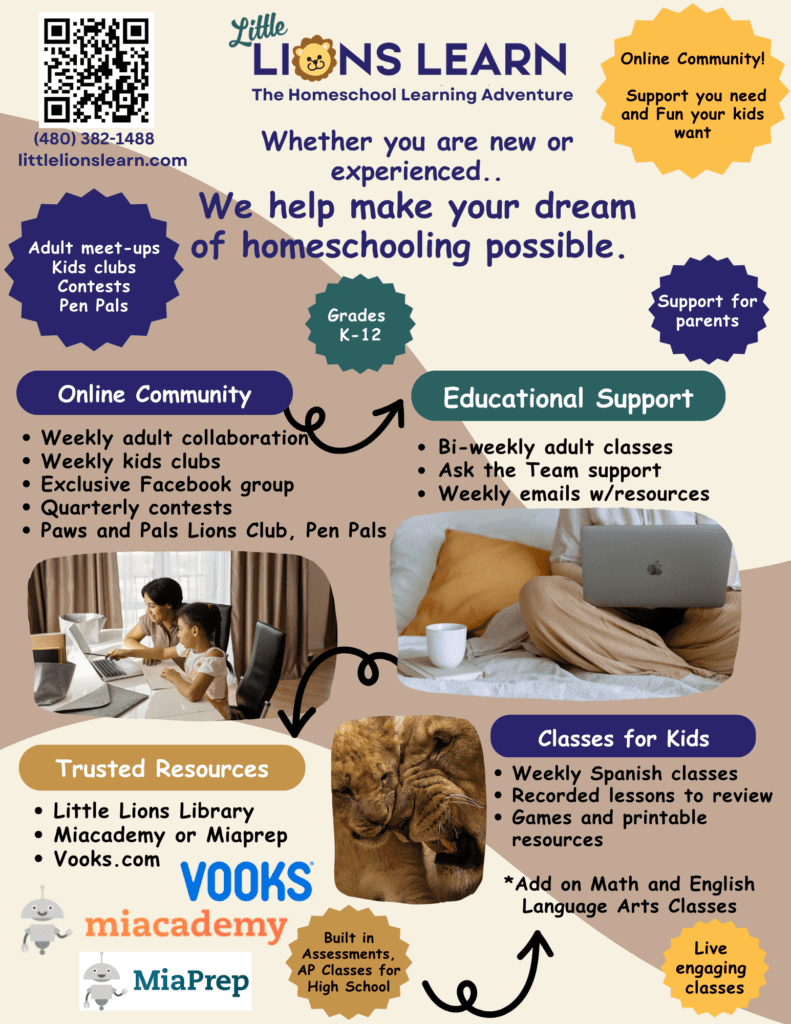102 Essential Life Skills for a Well-Rounded Education
Homeschooling offers a unique opportunity to provide a comprehensive education to children, encompassing not only traditional academic subjects but also essential life skills. Equipping homeschooled kids with a diverse set of life skills prepares them for the challenges and successes they will encounter throughout their lives. Here, we present a comprehensive list of 102 life skills to teach homeschool kids that can be incorporated into your homeschooling curriculum, along with a brief description of each skill.
1. Communication
Teach children effective verbal and written communication to express their thoughts and ideas clearly.
2. Active Listening
Help kids develop attentive listening skills to enhance their understanding and foster better relationships.
3. Public Speaking
Encourage children to overcome stage fright and confidently express themselves in public settings.
4. Empathy
Teach kids to understand and share the feelings of others, promoting kindness and compassion.
5. Conflict Resolution
Provide strategies for resolving conflicts peacefully and constructively.
6. Problem-Solving
Develop critical thinking and analytical skills to solve problems efficiently.
7. Decision Making
Teach children how to make informed decisions by evaluating options and considering consequences.
8. Time Management
Instill effective time management techniques to enhance productivity and reduce stress.
9. Goal Setting
Help kids set realistic goals and create action plans to achieve them.
10. Organization
Teach organizational skills to foster efficiency and create a structured learning environment.
11. Self-Discipline
Promote self-control and the ability to stay focused on tasks and responsibilities.
12. Resilience
Equip children with the ability to bounce back from setbacks and cope with challenges.
13. Emotional Intelligence
Teach kids to recognize and manage their emotions, as well as understand others’ emotions.
14. Teamwork
Promote collaboration and cooperation by teaching kids how to work effectively in groups.
15. Leadership
Nurture leadership qualities and encourage kids to take initiative and inspire others.
16. Adaptability
Help children develop flexibility and adapt to different situations and environments.
17. Financial Literacy
Teach kids about budgeting, saving, and the basics of personal finance.
18. Entrepreneurship
Foster creativity and critical thinking skills by introducing kids to the concepts of entrepreneurship.
19. Coding
Introduce children to coding and computer programming, promoting logical thinking and problem-solving.
20. Digital Literacy
Teach kids how to navigate the digital world responsibly and safely.
21. Internet Research
Develop skills to find reliable information online and evaluate sources for accuracy.

22. Self-Care
Teach children the importance of taking care of their physical, mental, and emotional well-being.
23. Cooking
Introduce kids to basic cooking skills to encourage healthy eating habits and independence.
24. Cleaning and Organization
Teach children how to maintain a clean and organized living space.
25. Laundry Skills
Help kids learn to wash, fold, and care for their clothes.
26. Sewing
Introduce basic sewing skills to repair clothes and encourage creativity.
27. First Aid
Teach children basic first aid techniques to respond to minor injuries and emergencies.
28. CPR
Provide CPR training to empower kids to respond in life-threatening situations.
29. Gardening
Cultivate an appreciation for nature and teach kids how to grow and care for plants.
30. Animal Care
Instill responsibility and empathy by teaching kids how to care for pets and animals.

31. Car Maintenance
Introduce basic car maintenance skills to promote independence and responsibility.
32. Home Repairs
Teach kids how to perform basic repairs and maintenance tasks around the house.
33. Basic Plumbing
Introduce children to basic plumbing skills to handle minor issues.
34. Electrical Safety
Educate kids about electrical safety and teach them to handle simple electrical repairs.
35. Fire Safety
Teach children about fire prevention, evacuation plans, and how to use fire extinguishers.
36. Self-Defense
Provide self-defense training to promote personal safety and confidence.
37. Critical Media Consumption
Teach kids how to critically analyze and evaluate media content.
38. Mindfulness
Introduce mindfulness practices to help children develop self-awareness and manage stress.
39. Negotiation Skills
Teach kids how to negotiate effectively and find mutually beneficial solutions.
40. Networking
Encourage children to build social connections and develop networking skills.
41. Manners and Etiquette
Teach children proper manners and etiquette for various social situations.
42. Cultural Awareness
Promote understanding and respect for different cultures and traditions.

43. Foreign Language Skills
Introduce kids to foreign languages, fostering cultural appreciation and communication skills.
44. Reading Comprehension
Develop reading comprehension skills by analyzing and interpreting texts.
45. Writing Skills
Teach various writing techniques and genres to enhance communication abilities.
46. Creative Writing
Encourage imagination and self-expression through creative writing exercises.
47. Research Skills
Teach kids how to conduct effective research and analyze information.
48. Logical Reasoning
Develop logical reasoning skills through puzzles, riddles, and critical thinking exercises.
49. Scientific Method
Introduce the scientific method to foster curiosity and a systematic approach to problem-solving.
50. Experimentation
Engage children in hands-on experiments to explore scientific concepts.
51. Environmental care
Educate kids about how to care for our enviroment from a Christian persepctive.
52. Recycling
Teach children about recycling practices and the benefits of waste reduction.

53. Upcycling
Encourage creativity and environmental consciousness through upcycling projects.
54. Astronomy
Introduce children to the wonders of the universe and foster an interest in space exploration.
55. Geology
Explore the Earth’s geological processes, rocks, minerals, and natural formations.
56. Geography
Teach kids about world geography, countries, capitals, and important landmarks.
57. History
Introduce historical events and figures to develop a sense of the past and its impact on the present.
58. Civics and Government
Educate children about the democratic process, rights, and responsibilities of citizens.
59. Personal Safety
Teach children about personal safety measures, including road safety and stranger danger.
60. Emergency Preparedness
Prepare kids for emergencies by creating emergency kits and teaching evacuation procedures.
61. Camping Skills
Teach children essential camping skills, such as setting up a tent and building a campfire.
62. Map Reading and Navigation
Develop map reading skills and an understanding of navigation techniques.
63. Basic Carpentry
Introduce kids to basic carpentry skills, such as measuring, sawing, and assembling.

64. Painting and Drawing
Encourage creativity and self-expression through various art mediums.
65. Music Appreciation
Teach children about different music genres, composers, and musical instruments.
66. Playing an Instrument
Encourage kids to learn to play a musical instrument to develop discipline and creativity.
67. Dance
Introduce children to different dance styles and promote physical fitness and coordination.
68. Meditation and Prayer
Teach kids prayer and meditation techniques to improve their relationship with God.
69. Physical Fitness
Promote an active lifestyle and teach kids about the importance of physical fitness.
70. Sportsmanship
Instill the values of fair play, teamwork, and respect in sports and competitive activities.
71. Swimming
Teach children swimming skills for water safety and physical fitness.
72. Biking
Promote biking as a means of transportation, physical activity, and environmental consciousness.
73. Basic Car Repair
Introduce kids to basic car repair skills, such as changing a tire and checking fluid levels.
74. Budgeting
Teach children financial planning and budgeting skills to manage their finances.
75. Time Management
Help kids prioritize tasks, set goals, and manage their time effectively.
76. Networking and Relationship Building
Teach children the importance of building relationships and networking.
77. Presentation Skills
Develop presentation skills to confidently communicate ideas and information.
78. Interview Skills
Prepare kids for job interviews by teaching them effective interview techniques.
79. Entrepreneurship
Encourage children to explore entrepreneurship by developing business ideas and plans.
80. Digital Marketing
Introduce kids to digital marketing concepts and strategies.
81. Negotiation and Persuasion
Teach negotiation and persuasion skills for various personal and professional situations.
82. Project Management
Develop project management skills by planning and executing projects.
83. Risk Assessment
Teach children to assess risks and make informed decisions to minimize negative outcomes.
84. Emotional Regulation
Help kids recognize and regulate their emotions for improved mental well-being.
85. Conflict Resolution
Teach children constructive ways to resolve conflicts and promote peaceful relationships.
86. Active Citizenship
Encourage kids to actively participate in their communities and make a positive impact.
87. Social Media Literacy
Teach kids to navigate social media responsibly, including privacy settings and online etiquette.
88. Cybersecurity
Educate children about online safety, password management, and protection against cyber threats.

89. Media Production
Introduce kids to media production skills, such as photography, videography, and editing.
90. DIY Crafts
Encourage creativity and resourcefulness through do-it-yourself craft projects.
91. Self-Reflection
Teach kids the importance of self-reflection and introspection for personal growth.
92. Healthy Relationships
Educate children about healthy relationships, boundaries, and effective communication.
93. Cultural Sensitivity
Promote respect, inclusivity, and understanding of different cultures and perspectives.
94. Philanthropy
Teach kids about giving back to the community and engaging in philanthropic activities.
95. Mindful Eating
Encourage mindful eating habits and teach kids about nutrition and healthy food choices.
96. Self-Defense
Provide self-defense training to empower kids to protect themselves in dangerous situations.
97. Positive Body Image
Promote body positivity and teach kids to appreciate their bodies and respect others.
98. Respecting Others
Respect is a fundamental aspect of showing love and honor towards others, as encouraged by the Bible.
99. Volunteering
Instill a sense of responsibility and empathy while helping others.
100. Self-Advocacy
Help children develop the skills to advocate for themselves and express their needs.
101. Networking
Teach kids the importance of building social connections and developing networking skills.
102. Continuous Learning
Cultivate a love for learning and encourage lifelong learning beyond homeschooling.
Life Skills for Homeschool Kids Conclusion
Incorporating life skills into homeschooling offers a well-rounded education that equips children with the tools they need to thrive in various aspects of life. The 102 life skills for homeschool kids cover a wide range of areas, including communication, personal development, practical skills, creativity, and social responsibility. By teaching these skills, you empower your homeschool kids to navigate the world with confidence, resilience, and a strong sense of purpose. Remember, the journey of learning is a lifelong adventure, and the skills acquired today will shape their future success.
Let Little Lions Learn help with Math, English, and Spanish as a second language
so you can focus on the fun life skills for your homeschool kids.

